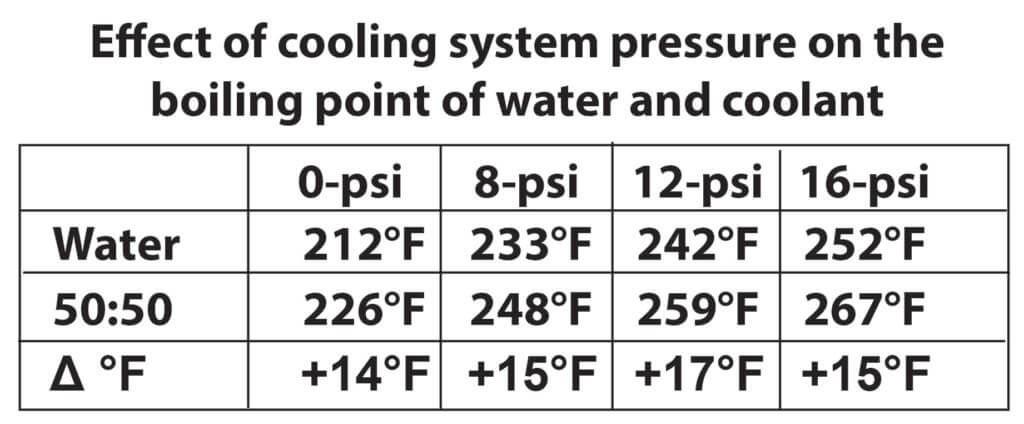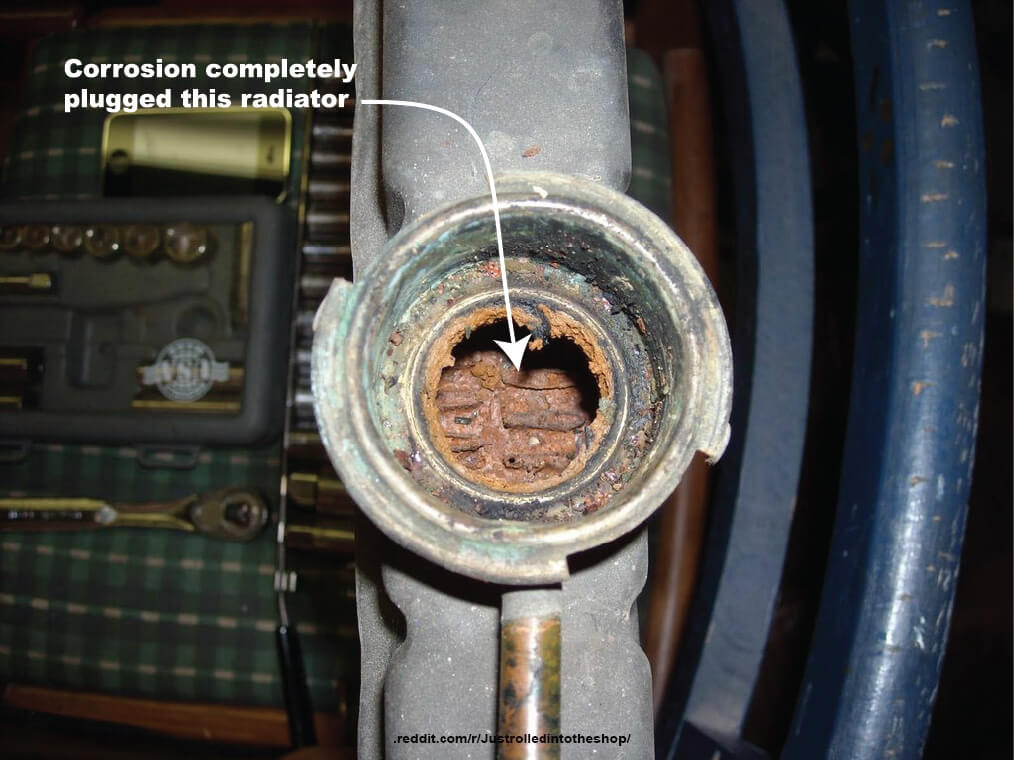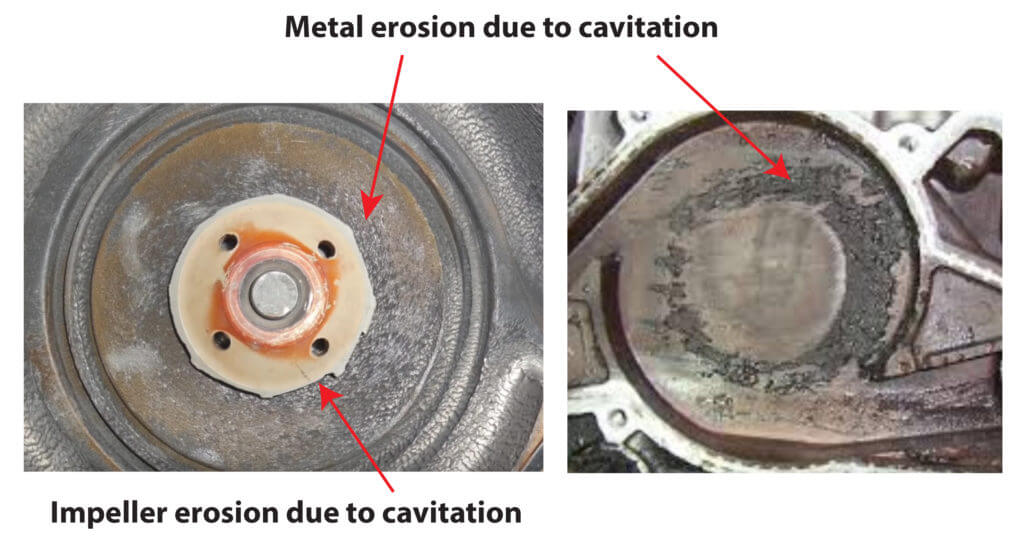Engine coolant verus water
Water instead of coolant
Some self-proclaimed experts say there’s no need for engine coolant because water actually cools better than engine coolant. It’s true that water transfers heat better than a 50:50 mix of water and coolant. But there’s far more to the story than just heat transferability.
What does an engine coolant do?
• Absorbs heat from the engine and transfer that heat to the air flowing through the radiator.
Water does that better than a 50:50 mix of water and coolant
• Coolant raises the boiling point AND prevents the coolant from vaporizing at high temperatures
A 50:50 mix of water and coolant provides a higher boiling point (14°F to 17°F) at cooling system pressures than water alone.

• Coolant lowers the freezing point
Water freezes at 32°F
• But a 50:50 mix of water and coolant freezes at -35°F
• Coolant prevents corrosion, cavitation, and galvanic reactions
• Water offers no protection against corrosion, cavitation, or galvanic action
• Coolant lubricates and protect cooling system seals and gaskets
Water does not lubricate or protect cooling system seals or gaskets.
Using water instead of coolant damages your cooling system
Because engine cooling systems incorporate dissimilar metals, water acts as the electrolyte to facilitate galvanic action; the transfer of metal ions from one metal to another, resulting in thinning metal and leaks. Water also promotes oxidation of ferrous metals, resulting in rust formation and heater core and radiator clogging.
Water promotes cavitation
Cavitation damages the water pump housing and impeller, reducing the life of your water pump

Water pump cavitation
Water instead of coolant is a really bad idea
Overall, using water instead of coolant is bad for your engine. It will cause internal corrosion. It can damage the water pump due to lack of seal lubrication and cavitation damage. It can cause your engine to overheat.
©, 2021 Rick Muscoplat
Posted on by Rick Muscoplat